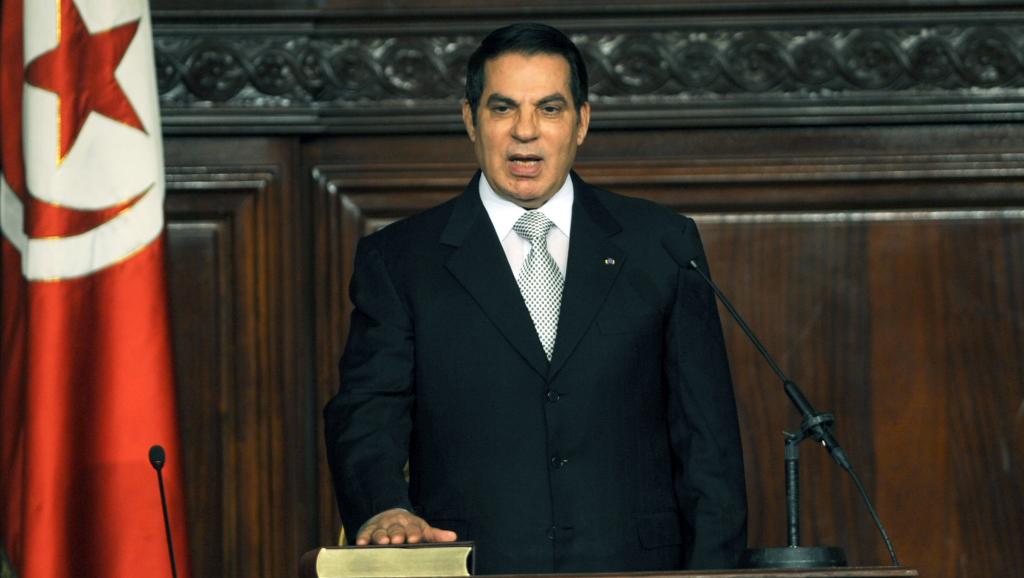President Zine El Abidine Ben Ali’s 23-year regime marked an era of authoritarian control, economic development paired with corruption, and political oppression that culminated in the Arab Spring of 2011. During his presidency from 1987 to 2011, Ben Ali implemented reforms that boosted Tunisia’s economy, but his government was plagued by nepotism, censorship, and human rights abuses. This article explores the legacy of Ben Ali’s rule, its impact on Tunisia, and the factors that led to the regime’s eventual downfall.

The Rise of Ben Ali to Power
Zine El Abidine Ben Ali ascended to power in 1987 through a bloodless coup that ousted Tunisia’s first president, Habib Bourguiba, citing his declining health. Ben Ali promised political reform and economic growth, which initially gained him public support. However, this hope was short-lived as his 23-year regime grew increasingly autocratic, consolidating power and suppressing opposition under the guise of national stability.
Economic Achievements and Inequalities
Ben Ali’s regime is credited with significant economic advancements. Tunisia experienced consistent GDP growth, and sectors like tourism and textiles flourished. However, this growth was unevenly distributed, with wealth concentrated among the elite, particularly Ben Ali’s family. For example, according to World Bank reports, regional disparities left southern and interior regions impoverished while coastal cities prospered, fueling resentment.
Corruption and Nepotism Under Ben Ali
The 23-year regime of Ben Ali was notorious for rampant corruption and nepotism. His family, particularly his wife Leila Trabelsi, was accused of controlling significant portions of the economy. Transparency International ranked Tunisia poorly in corruption indexes, with an estimated 21% of the private sector controlled by Ben Ali’s extended family. This corruption eroded public trust and sowed the seeds of discontent.
The Police State and Political Oppression
Ben Ali’s regime maintained control through an extensive police state that monitored citizens and silenced dissent. Political opposition was systematically crushed, with activists imprisoned or exiled. For instance, the Ennahda Movement, an Islamist political group, faced relentless persecution. Censorship was pervasive, with media and the internet heavily regulated to suppress critical voices.
The Impact of Censorship on Society
Censorship during Ben Ali’s rule limited public discourse and isolated Tunisia from the global community. The press operated under strict government oversight, and social media platforms like Facebook were closely monitored. For example, the regime famously blocked YouTube and DailyMotion in 2007 after videos of protests surfaced, demonstrating how the suppression of information stifled democratic aspirations.
Vote
Who is your all-time favorite president?
The Spark That Ended the 23-Year Regime
The tipping point for Ben Ali’s regime was Mohamed Bouazizi’s self-immolation in December 2010. Bouazizi, a street vendor harassed by corrupt officials, became a symbol of resistance against systemic injustices. His tragic act ignited nationwide protests demanding political and economic reform, culminating in Ben Ali’s ousting in January 2011. This marked the beginning of the Arab Spring.
Key Factors Leading to the Downfall
Several factors contributed to the downfall of Ben Ali’s regime:
- Widespread corruption that alienated citizens.
- Economic inequality exacerbating regional divides.
- Repressive policies stifling public dissent.
- An over-reliance on security forces, leading to public hostility.
- The failure to address youth unemployment, with rates exceeding 30%.
Watch Live Sports Now!
Dont miss a single moment of your favorite sports. Tune in to live matches, exclusive coverage, and expert analysis.
Start watching top-tier sports action now!
Watch NowThese interconnected issues created a perfect storm for revolution, as Tunisia’s youth and marginalized groups demanded change.
Tunisia’s Transition Post-Ben Ali
Following the ousting of Ben Ali, Tunisia embarked on a challenging transition to democracy. The political vacuum left by the regime was filled with debates over the new constitution and the role of religion in governance. The National Dialogue Quartet, composed of civil society organizations, played a crucial role in mediating conflicts and stabilizing the nation. For example, their efforts earned them the Nobel Peace Prize in 2015.
Comparing Tunisia’s Revolution to Other Arab Nations
| Country | Catalyst for Change | Outcome |
|---|---|---|
| Tunisia | Bouazizi’s self-immolation | Democratic transition |
| Egypt | Tahrir Square protests | Return to authoritarian rule |
| Libya | Armed conflict | Ongoing instability |
Tunisia’s relative success in achieving democracy highlights the importance of inclusive dialogue and robust civil society, setting it apart from other nations that experienced the Arab Spring.
A Quote Reflecting the Legacy of Ben Ali’s Regime
The legacy of Ben Ali’s rule can be summarized in this powerful observation by a Tunisian activist:
“Freedom is never free, and for 23 years, we paid the price with silence. Now, we demand our voices be heard.”
This sentiment encapsulates the resilience and determination of Tunisians in reclaiming their rights and shaping their future.
Reflecting on the Lessons of Ben Ali’s Regime
President Zine El Abidine Ben Ali’s 23-year regime offers lessons on the dangers of unchecked power, the consequences of systemic corruption, and the resilience of people fighting for justice. His rule, while marked by economic growth, ultimately crumbled under the weight of inequality and oppression. Reflect on the importance of accountability and civic participation in preventing such regimes. Share this story to inspire global conversations about democracy and human rights, and consider how each of us can contribute to a more just and equitable society.